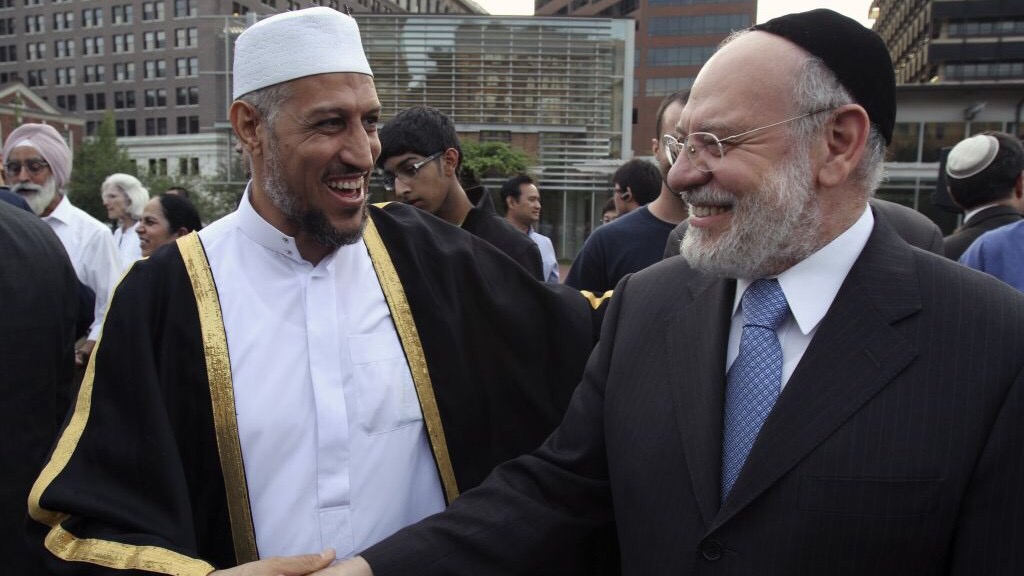In the Name of God: The Extremely and Eternally Loving and Caring
In an interview on NPR, White House Special Assistant to the President, Sebastian Gorka, had this exchange with host Steve Inskeep:
INSKEEP: On Feb. 3 when you were on the program, we asked if you felt the president believes Islam is a religion. The reason we had to ask that is because the previous national security advisor Michael Flynn made some statements suggesting he didn’t believe it was a religion. You weren’t aware then what the president’s view was. Have you learned since? Does the president believe Islam is a religion?
GORKA: It would be nice if you actually reported things accurately. I didn’t say I would refuse to do anything of the sort. This is not a theological seminary. This is the White House. And we’re not going to get into theological debates. If the president has a certain attitude to a certain religion, that’s something you can ask him. But we’re talking about national security and the totalitarian ideologies that drive the groups that threaten America.
While he did say, immediately afterwards, that Islam is not the enemy, it was a bit concerning (to be generous) that Gorka refused to say whether the President thinks Islam is even a religion. The concern, on the part of many (including this writer), is that if Administration officials do not believe Islam is a religion, then they can deny Muslims their First Amendment rights.
This begs the question: what is religion?
I put this question to religion scholar Reza Aslan, host of the series “Believer” on CNN which premiers on March 6 at 10 PM EST:
There is no standard definition of religion in academia though many have tried to provide one. Mine follows that of Levi-Strauss and others who view religion as a form of communication. I define it as a systematized language of symbols and metaphors that allows a particular community to communicate with each other the ineffable experience of faith.
Islam, just like Christianity and Judaism, fits this definition quite well.
Yet, let us go a little further and compare the three faiths on their basic beliefs:
Christianity and Judaism both believe in the God of Abraham, Isaac, and Jacob. So does Islam. Christianity and Judaism both believe that God sent down revelation to humanity to teach it how to conduct itself: for Judaism, it’s the Torah, and for Christianity it is Jesus Christ himself. So does Islam: its scripture is the Quran, which has a great many similarities to the Bible.
As an outgrowth of revelation, Christianity and Judaism both believe that, throughout the ages, God has sent Prophets as guides and teachers for humanity when it deviates from the truth. So does Islam, and many of the same Prophets in the Bible – such as Abraham, Ishmael, Isaac, Noah, Ezekiel, among others – are mentioned in the Quran.
Both Christianity and Judaism have a concept of an Afterlife, where humanity will stand before God to account for its actions on earth. So does Islam, and the Quran is full of vivid descriptions of the Last Day.
Moreover, the key figures of both Judaism and Christianity loom very large in Islam. Moses, for instance, is mentioned in more than 70 passages in the Quran. The stories of his birth, his rearing in the Palace of the Pharoah, his mission, his miracles, the Passover, and the Exodus are all detailed in the Quran. It was Moses, according to Islamic tradition, who was behind our having to pray only five times a day (it was originally supposed to be 50). Thanks, Master Moses!
Jesus Christ, as well, is a very prominent figure in Islam and the Quran. He is described as the “Word of God,” a “spirit emanated from Him,” and being “strengthened by the Holy Spirit” in the Quran. The only woman mentioned by name in the Quran is Mary, the Holy Virgin and mother of Christ. In the Quran, Jesus heals the sick, cures the blind, and even raises the dead. One cannot be a Muslim if he does not believe in Jesus. Mustafa Aykol has written an excellent book about Jesus in Islam (about which I will write very soon).
These are only a small number of the similarities between Islam, Judaism, and Christianity. These three faiths come from the same source, the God of Abraham, and all hearken to this self-same Patriarch.
Thus, if Islam is not a religion but rather a “totalitarian ideology,” as some are wont to claim, then neither can Christianity nor Judaism be considered religions, either. Such a notion is preposterous, of course. And so is that claim about Islam.


